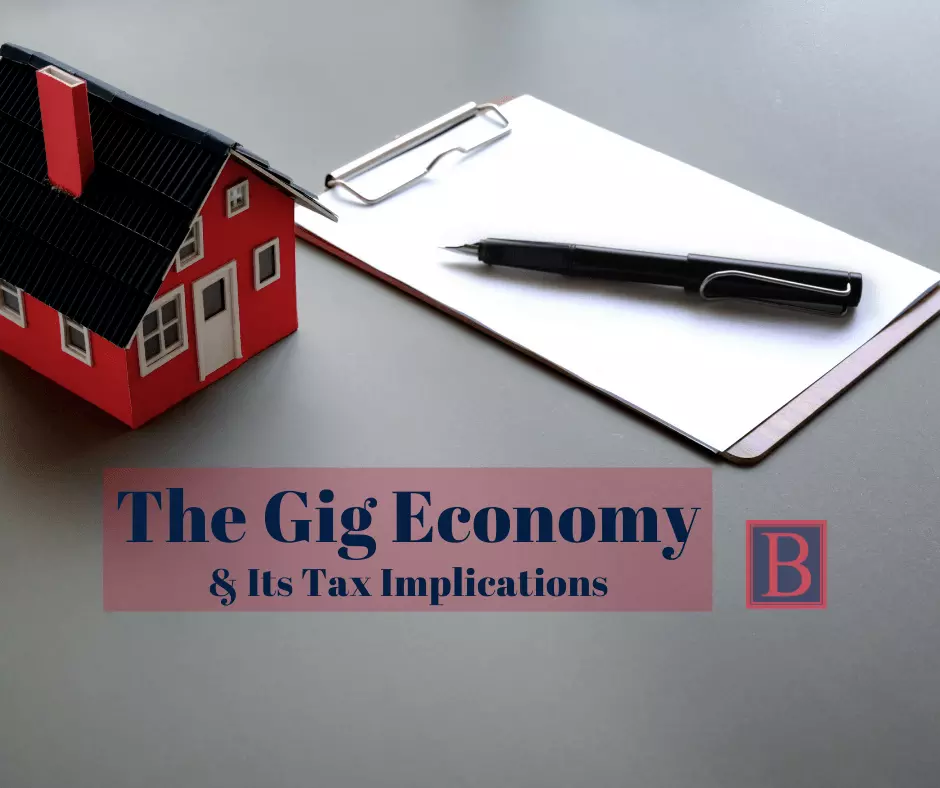In 2020, a lot of people decided to solicit their services- accepting “gig” jobs - to help make ends meet during the pandemic. In doing so, many of these individuals did not understand what they were signing up for with regards to how the money they made from these “gigs” would affect their taxes.
The Gig Economy is comprised of people who earn money as a freelancer or are self-employed. Typically, those in the gig economy use technology known as “online platforms” to connect with customers and provide services - renting out a home or providing a delivery service. Think Uber, DoorDash, Fiverr, AirBnB, etc.
All money earned as in the gig economy is taxable. Both the company providing the platform for the service and the individual performing the service must follow certain tax rules when filing under the gig economy. Income is taxable EVEN if, the taxpayer providing the service does not receive an information return (Form 1099, IEC, Form 1099-MISC, Form 1099-k, or Form W2), their work is only part time, or they are paid in cash.
Gig economy individuals are required to pay income taxes, self-employment taxes, and additional Medicare taxes. Independent contractors may be able to deduct business expenses, so if you work in the gig economy, always remember to keep receipts and records of business expenses.
To ensure you are filing correctly and taking full advantage of all opportunities available to Taxpayers in the gig economy, contact us at Bryson Law Firm, LLC to be paired with a tax professional.























